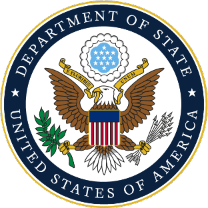Nature crime at COP16
Key developments and takeaways from COP16 in Cali, Colombia

The 16th Conference of the Parties on the Convention on Biological Diversity (COP16) in Cali, Colombia, saw several new developments related to nature crime, as well as a range of side events on the issue.
Here’s our roundup.
Value of international cooperation made clear. More is needed.
The call for greater international cooperation on nature crime was heard regularly during the COP. It’s a need that is often cited by actors across different sectors, and was one of the drivers behind the co-creation of the Nature Crime Alliance, launched in August last year, which is building the space to facilitate such collaboration.
Network of subnational authorities launched to strengthen local efforts on nature crime
Efforts to increase international collaboration during the COP included the launch of the ‘Cities against criminal economies that affect biodiversity’– a new international coalition of subnational authorities aimed at driving greater collaboration to counter the environmental impact generated by organised crime.
‘Local authorities play a key role as first responders to this problem,’ the official announcement stated. ‘Although policies to combat these crimes are often a national responsibility, it is essential to strengthen collaboration between the different levels of government to ensure that the measures implemented respond to the specific realities of each territory.’
Organised in partnership between the Mayor of Cali’s office and The Global Initiative Against Transnational Organized Crime (GITOC), the Coalition has a range of aims including promoting the exchange of experiences, good practices and lessons learned with members of the Coalition; promoting projects to improve the collection and analysis of data on how criminal economies affect the environment; and to jointly design innovative initiatives that combine local and global efforts in the fight against illegal economies, contributing to the effective conservation of biodiversity.
The Coalition, supported by the UK Government and TEFOS, was launched during a session in the Blue Zone on 26 October.
Regional cooperation for conservation and law enforcement
The value of meaninful international cooperation was also highlighted during a session convened by the GEF on tiger conservation, which saw insightful interventions from other Alliance members including WCS and WWF, as well as comments from Rick Scobey, Executive Director, TRAFFIC. The session highlighted the value of governmental cooperation in tiger conservation efforts, noting in particular the key leadership role Bhutan has played in bringing together tiger range countries to broker progress.
Regional cooperation between governments was also raised by Rodrigo Botero, Director, FCDS Colombia, during an Amazon Conservation Association event on the value of technology and partnerships in tackling illegal gold mining in the Amazon. Botero emphasised the need for greater coordination across the Amazon nations, noting that criminal gangs routinely cross borders in the region to elude authorities. “They know our weaknesses,” he said. This notion was repeated by other experts during the COP, with Melina Risso, Research Director, Igarape Institute, highlighting the problem during a WWF event. “States struggle to collaborate, but the gangs do.”
The value of networks in addressing this challenge was also touched on by Karine Hertzberg, Senior Advisor, Norway’s International Climate Finance Initiative (NICFI), Colombia, who cited the value of initiatives such as the Nature Crime Alliance, of which Norway is a founding member.
Illegal gold mining loomed large
The Amazon Conservation event was one of several that focused on illegal mining – with concerns around mining a major theme during the COP.
Colombia proposes international agreement on mineral supply chain traceability
With illegal gold mining devastating ecosystems and global demand for transition minerals on the rise, the government of Colombia convened a dialogue on a proposed international agreement aimed at ensuring the legality and sustainability of mineral supply chains. The session, on 29 October, explored the establishment of a global commitment on traceability of mineral supply chains within the framework of COP16, and with a view towards COP30 (the ‘Climate COP’ set to convene in Brazil in 2025). One of the stated goals of the proposed agreement is to ‘prevent the illegality of mining production and commercialization’.
Mining’s role in deforestation highlighted in WRI report
From 2001 to 2020, the world lost nearly 1.4 million hectares of trees from mining and related activities, an area of land roughly the size of Montenegro, according to a new report by World Resources Institute (WRI) published during the COP. The report, which focuses on mining in general, not just illegal mining, found that Indonesia has the highest tree cover loss linked to mining (370,000 hectares) followed by Brazil (170,000 hectares), mostly due to coal mining and small-scale gold mining, respectively. Read the report.
New policy paper on illegal gold mining in the Amazon published
The FACT Coalition, alongside Igarapé Institute, the Amazon Alliance for Reducing the Impacts of Gold Mining (AARIMO), and the Observatory on Illegal Mining, published a new policy paper on addressing illegal gold mining in the Amazon region.
The paper offers six recommendations to support policymakers curb this scourge:
1) Promote shared responsibility among both source and destination countries to address illegally-mined gold
2) Combat illicit finance to prevent environmental criminals from profiting off of the destruction of vulnerable ecosystems
3) Strengthen governance in cross-border areas
4) Advance collective, community-led actions under a “watershed approach” to address mercury contamination in affected areas
5) Establish a minimum legal and regulatory framework for gold supply chains across the Amazon region
6) Strengthen due diligence and financial monitoring in the gold supply chain
7) Facilitate a shift toward a sustainable development model that includes alternative livelihoods for affected communities.
Find out more and download the policy brief here.
Indigenous Peoples and local communities’ role as environmental defenders recognised
Subsidiary body formed to work on 8(j)
Parties to the Convention on Biological Diversity agreed to initiate a new Programme of Work on Article 8(j) and other provisions of the Convention related to Indigenous Peoples and local communities (IPLC). The agreement, which includes the establishment of a permanent subsidiary body to elevate issues around 8(j) and bolser the engagement of Indigenous and local communities with the Convention, underscores the essential value of traditional knowledge and practices of Indigenous and local communities in safeguarding biodiversity.
This milestone development reflects these communities’ essential role as environmental defenders – an issue that the Nature Crime Alliance, in partnership with Indigenous Peoples’ Rights International, is focusing on through the Indigenous Peoples and Frontline Defenders Working Group. This issue was a major theme among side events at COP16.
Protecting environmental defenders
“Indigenous Peoples and local communities are suffering because they are protecting our precious natural resources,” Grethel Aguilar, Director General, IUCN, said during a session on protection mechanisms for environmental defenders. “What they have been through is heartbreaking.” At that session, SIDA, Sweden’s aid agency, shared their intention to increase funding on human rights and environmental defenders, while the Canadian government announced a US$7m grant to the Podong Indigenous Peoples Initiative.
Participants at the COP also gathered to remember environmental defenders who have lost their lives. This powerful display of grief and solidarity served as a visceral reminder of the injustices and extreme danger faced by communities protecting nature and their traditional way of life around the world.
Attacking the profits: Financial crime linked to environmental crime
The financial aspects of nature crime was a big theme at COP16, from side-events to the launch of new knowledge products.
Environmental crime financial toolkit
A new toolkit designed to help financial institutions strengthen their screening capacity when reviewing existing clients, onboarding new ones, and assessing sectoral risks linked to environemntal crime was launched during a session at Casa Britanica on 30 October. The Environmental Crimes Financial Toolkit (ECFT), developed by WWF and Themis, supported by the Climate Solutions Partnership, assists financial institutions in monitoring the risks related to deforestation and land conversion – and, more broadly, environmental crimes – that could be linked to financial operations. Read more about the ECFT.
Political will
New tools and resources are only part of the solution, however. What is needed is greater urgency among policymakers to address financial crime linked to nature crime, according to Oswaldo Cuadros, Head of Colombia’s Financial Intelligence Unit (FIU).
“We have tools in place,” he said during a WWF event on crime convergence on 27 October. “All we lack is political will.”
Cuadros called for the issue to be elevated within the Egmont Group – the international body that facilitates and prompts the exchange of information, knowledge, and cooperation amongst member FIUs. “The Egmont Group should have a focus on biodiversity,” he said, adding there is a need for an Observatory on financial crime in the Amazon. “We need to increase political will.”
The Wildlife Justice Commission, INTERPOL, and UNODC also took part in a session exploring the critical role of financial investigations in disrupting wildlife crime networks and protecting biodiversity.
Crime convergence and environmental damage
The well-established relationships between nature crime and other forms of serious organised crime, particularly the illegal drugs trade, was the focus of several policy developments and ministerial interventions during the COP.
Three Colombian ministries sign agreement on illicit economies and the environment
In a landmark example of collaboration between justice, environment and agriculture ministries on the issue of nature crime, Colombian policymakers signed a new agreement on ‘Ecological and Productive Transformation for the Substitution of Illicit Crops in Areas of Special Environmental Importance.’ The agreement was signed by Environment Minister Susana Muhamad, Minister of Justice and Law, Ángela María Buitrago Ruiz, and others during a UN Office on Drugs and Crime (UNODC) side event on the environmental impact of the ‘war on drugs’. Aimed at prioritising environmental protection in drug policy through joint work with communities, roughly US$47m has been allocated for the initiative over the next two years, the Colombian government has stated.
UK Government affirms commitment tackle convergences
The UK’s Parliamentary Undersecretary for Nature, Mary Creagh CBE, made a powerful intervention that underscored the convergences between narcotics and environmental crimes, stating that the UK is “resolute” in countering the drugs trade and its devastating impact on people and the environment. “Working together we must end the intimidation, violence and corruption of these hideous activities,” she said.
Alliance member readouts
Several Nature Crime Alliance members have published their own COP16 roundups and reflections.
IUCN published a statement by Director General Grethel Aguilar on COP16 here
FACT Coalition’s Julia Yansura wrote a thoughtful blog post here
TRAFFIC published their takeaways from COP16 here
WWF highlight the successes but also the disappointments from COP16 in their readout here
WCS published a comprehensive review of COP16 here


